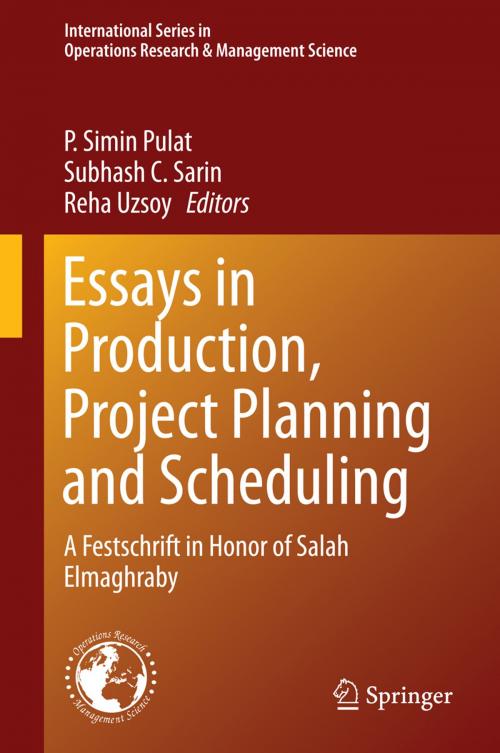Essays in Production, Project Planning and Scheduling
A Festschrift in Honor of Salah Elmaghraby
Business & Finance, Management & Leadership, Operations Research, Production & Operations Management| Author: | ISBN: | 9781461490562 | |
| Publisher: | Springer US | Publication: | December 2, 2013 |
| Imprint: | Springer | Language: | English |
| Author: | |
| ISBN: | 9781461490562 |
| Publisher: | Springer US |
| Publication: | December 2, 2013 |
| Imprint: | Springer |
| Language: | English |
From the Preface:
This festschrift is devoted to recognize the career of a man who not only witnessed the growth of operations research from its inception, but also contributed significantly to this growth. Dr. Salah E. Elmaghraby received his doctorate degree from Cornell University in 1958, and since then, his scholarly contributions have enriched the fields of production planning and scheduling and project scheduling. This collection of papers is contributed in his honor by his students, colleagues, and acquaintances. It offers a tribute to the inspiration received from his work, and from his guidance and advice over the years, and recognizes the legacy of his many contributions.
Dr. Elmaghraby is a pioneer in the area of project scheduling (in particular, project planning and control through network models, for which he coined the term ‘activity networks’.) In his initial work in this area, he developed an algebra based on signal flow graphs and semi-Markov processes for analyzing generalized activity networks involving activities with probabilistic durations. This work led to the development of what was later known as the Graphical Evaluation and Review Technique (GERT), and GERT simulation models. He has made fundamental contributions in determining criticality indices for activities, in developing methodologies for project compression and time/cost analysis, and in the use of stochastic and chance-constrained programming and Petri Nets for the analysis of activity networks.
This volume brings together fourteen contributions, which can be viewed under the following three main themes: operations research and its application in production planning; project scheduling, and production scheduling, inspired by, and in many cases based on, Dr. Elmaghraby’s work in these areas. The first five chapters are devoted to the first theme, followed by four chapters each devoted to the other two, respectively. An additional chapter is devoted to the vulnerability of multimodal freight systems.
From the Preface:
This festschrift is devoted to recognize the career of a man who not only witnessed the growth of operations research from its inception, but also contributed significantly to this growth. Dr. Salah E. Elmaghraby received his doctorate degree from Cornell University in 1958, and since then, his scholarly contributions have enriched the fields of production planning and scheduling and project scheduling. This collection of papers is contributed in his honor by his students, colleagues, and acquaintances. It offers a tribute to the inspiration received from his work, and from his guidance and advice over the years, and recognizes the legacy of his many contributions.
Dr. Elmaghraby is a pioneer in the area of project scheduling (in particular, project planning and control through network models, for which he coined the term ‘activity networks’.) In his initial work in this area, he developed an algebra based on signal flow graphs and semi-Markov processes for analyzing generalized activity networks involving activities with probabilistic durations. This work led to the development of what was later known as the Graphical Evaluation and Review Technique (GERT), and GERT simulation models. He has made fundamental contributions in determining criticality indices for activities, in developing methodologies for project compression and time/cost analysis, and in the use of stochastic and chance-constrained programming and Petri Nets for the analysis of activity networks.
This volume brings together fourteen contributions, which can be viewed under the following three main themes: operations research and its application in production planning; project scheduling, and production scheduling, inspired by, and in many cases based on, Dr. Elmaghraby’s work in these areas. The first five chapters are devoted to the first theme, followed by four chapters each devoted to the other two, respectively. An additional chapter is devoted to the vulnerability of multimodal freight systems.















